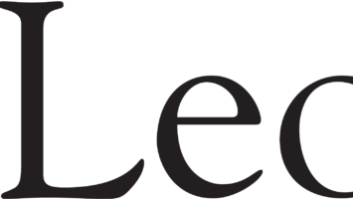Washington, D.C. – Multiple technical and policy rules approved Thursday by the FCC for digital AM/FM broadcasting will enable digital AM stations to broadcast at night, give digital FM stations more bandwidth for additional multicast channels, and let stations offer datacasting and multicasting services without prior approval.
The FCC said approval of nighttime digital AM broadcasting will encourage AM stations to adopt digital.
Thursday’s 5-0 vote did not impose restrictions on the digital recording of digital AM and FM broadcasts or impose new public-interest or local-content requirements on multicast FM channels. Such requirements could have included forcing FM stations to lease multicast channels to women and minority operators.
The FCC, however, did not close the door on future copy-control restrictions or new local-content and public-interest requirements. The commission is holding off on copy-control deliberations for now while the broadcast, consumer electronics, and content industries continue negotiations, a spokesman said. New public-interest requirements could also be imposed in the future because the FCC agreed to seek public comments on the issue.
Thursday’s action “provides automakers, broadcasters, receiver manufacturers and retailers with the certainty of formal adoption of critical HD Radio services,” said Robert Struble, president of iBiquity Digital, whose digital-radio standard was approved by the FCC in October 2002. More than 1,200 stations have implemented iBiquity’s in-band on-channel digital technology, commercially known as HD Radio.
“From our perspective,” added iBiquity COO Jeff Jury, “this action makes it [digital broadcasting] a part of the fabric of broadcasting.”
In the proceedings, the commission also:
·allowed FM stations to lease out unused multicast channels;
·continued to require digital stations to broadcast an analog signal to ensure that consumers’ existing radios don’t become obsolete;
·declined to impose a mandatory digital-conversion schedule on stations;
·allowed booster and translator stations to broadcast a digital signal to extend digital’s geographic reach;
·and sought public comments on allowing broadcasters to offers subscription services.
The FCC held off formal approval of HD Radio technical standards approved by the National Radio Systems Committee (NRSC), which represents the broadcast and consumer electronics industries. The broadcast and CE industries have been voluntarily adhering to the standards while waiting for the FCC to give them the force of law, iBiquity said. The FCC approved the HD Radio standard in October 2002, and FCC adoption of the technical standards is expected to be a formality.
Although the commission’s approval was unanimous, commissioners Michael Copps and Jonathan Adelstein lamented the lack of public-policy requirements on multicast channels. Adeslstein called Thursday’s actions a “missed opportunity to promote diversity and the public interest.” Copps contended such policies are needed to enhance localism, local public affairs coverage, promote local artists, enhance diversity, and increase content for non-English-speaking people. Thursday’s action gave broadcasters “a free pass to run canned national programming” on their multicast channels, and national programming “has been responsible for much of broadcast radio’s troubles,” he said.
Adlestein complained of the “FCC’s outright refusal” to force or encourage “time brokerage requirements” on multicast channels for women and minorities.
Commissioner Deborah Taylor Tate, however, contended she doesn’t support the imposition of public interest requirements right now “until we see how radio will use” its new capability.
Commissioner Robert McDowell said Thursday’s vote will provide “regulatory certainty and flexibility” to encourage the digital transition. He said he likes the flexible bandwidth policy because it will let broadcasters deliver “multiple program streams and datacasts as they see fit.” Multicasting, he contended, is “inherently public-interest oriented,” and current public-interest requirements imposed on radio stations will apply to multicast channels.
The FCC action gives FM broadcasters more multicasting and datacasting options by adding an additional 50kbps to their digital bandwidth for a total of 146kbps. FM stations could broadcast a single 96 kilobits-per-second (kbps) CD-quality signal alongside a 32kbps program suitable for a mixed speech and music service, leaving additional bandwidth for new types of data services. Today, some multicast FM stations are delivering a high-quality 64kbps program and a supplementary 32kbps program in their allotted 96kpbs bandwidth.












